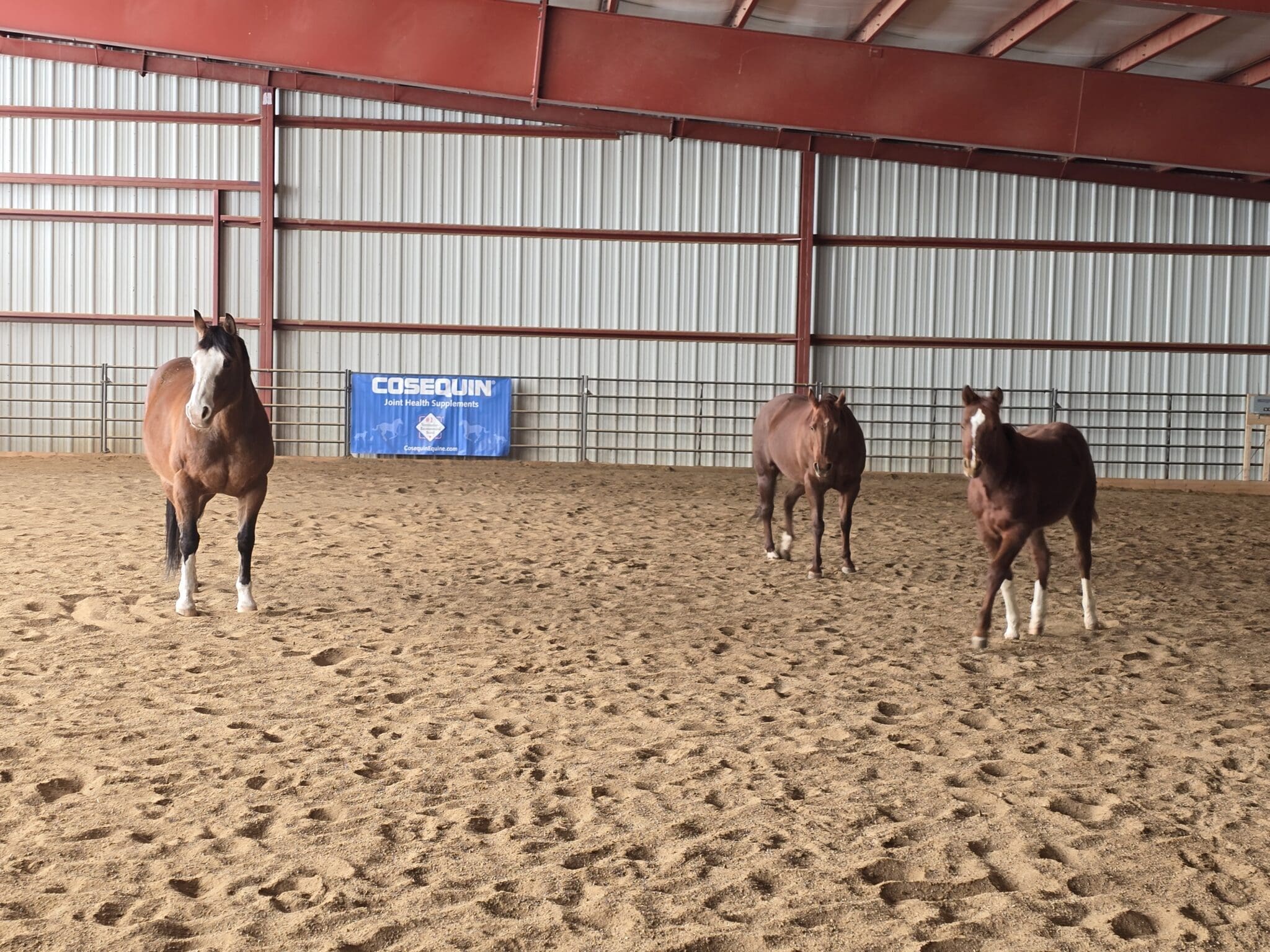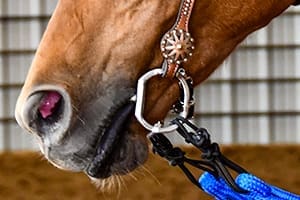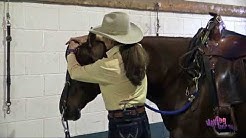In almost every clinic I do, we start with ground work to help establish a productive relationship between horse and human—to develop respect, obedience, focus, communication and control. Frequently, someone will remark that training horses is just like training dogs. While I can imagine some similarities, it is not a statement I would agree with whatsoever.
In fact, I think many of the problems that people have with horses stem from treating them like a dog or like a pet, instead of like a horse. While there are some similarities between training horses and dogs, perhaps in authority and leadership, there are some very distinct differences.
First, I like to remind people that chances are good that your dog will not kill you; but your horse might kill you without even trying! So when it comes to training horses, there is a huge difference in risk of injury. That’s why being safe around horses is more critical than anything else—it is nothing to take lightly. When we talk about learning about horses through “the school of hard knocks” we are being literal. This is not a sport for weenies.
And while you can physically force a dog to do something (like sit or heel)—you cannot physically force a horse to do anything—he’s way too big! You have to make him want to do it and that requires much deeper thought into his behavior and motivations, as well as the techniques you will employ. This sounds challenging, doesn’t it? But it is far more challenging than it sounds.
Understanding the origins of a horse‘s behavior (is it instinctive or learned?) and reading his emotions (is he scared, mad, obstinate or confused?) and his attempts at communication with you (why is he doing that?) takes knowledge, experience, understanding, observation, confidence and persistence.
A horse is not initially willing and eager to please and wanting be with you like a Golden Retriever. He is instinctively drawn to the herd and indifferent to you, unless and until you prove your leadership ability to him and give him the same sense of security and comfort that he gets from the herd. Then he will gladly go with you anywhere and be happy to be part of “your herd.”
There’s an old saying that fully addresses the inherent difference between horses and dogs. It says, “A dog will leave safety for food; but a horse will leave food for safety.” I am not sure who said it or when, but it is a simple statement with a depth of meaning. Dogs are pack animals and they hunt in packs—they are reliant on the pack for food and that’s the reason why using food in their training is so useful (it’s the only way I can get my dogs to do anything!). Dogs are programmed to ingratiate themselves to the higher-ups in the pack (and that includes you) because then they are more likely to get some food.
But a horse is not reliant on the herd for food—just turn him loose and he will find the food just fine, thank you very much. A horse is reliant on the herd for two things: safety and comfort. If you can give the horse those two things that he wants most—safety and comfort—he will not only want to be with you but he will be very eager to please you, so that he stays in good standing in your herd and can hold onto those good feelings.
In fact, food is often the source of major problems between horses and humans because of the hierarchy of a horse herd. You don’t have to be around horses long before you begin to understand the pecking order or herd hierarchy—which the behaviorist define as a “linear hierarchy,” meaning each and every individual of the horse herd is either dominant over or subordinate to each and every other individual (and like it or not—you fit into that hierarchy somewhere).
I have written and talked a lot about how horses establish hierarchy; there are only two factors involved. The dominant horse always controls the resources of the herd (food, water, shelter, etc.) and always controls the space of the subordinates (by backing them off and herding them around). If a horse ever comes to believe he is taking away food from you (because you hand-feed him treats or you allow him to rip the feed out of your hands when you bring it to him), he knows he is dominant over you and your relationship is going nowhere fast.
Same thing if he is allowed to walk all over you, head butt you or back you up. He’s controlling your space; therefore he’s dominant. While a dog that begs for food at the table is obnoxious, you might still be able to have a productive relationship with him. Not so with a horse—their disrespect quickly turns into disdain.
Here’s more FFT (food for thought). A poorly-behaved dog is obnoxious and no one like being around them—dogs that jump on you, scratch at the door, ram their nose in your crotch, insist on being petted or drop a slobber-covered tennis ball in your lap. But again, the obnoxious dog is less likely to hurt you or others.
A poorly behaved horse on the other hand—one that walks all over you, throws tantrums, bites or kicks, drags your through the mud, spooks, bucks, runs off– is a dangerous animal that can cause significant injury to you and the other people that have to handle him. I believe that horse owners have a greater responsibility to make sure their horse has manners and training that cause him to be safer and more pleasant to be around.
Finally, when comparing horses to dogs, you have to realize that your horse is not going to give you his unconditional love and devotion like your dog does. While you can develop a relationship with your horse that is very gratifying—where he is eager to please, obedient and looks up to you—this does not come for free; you have to earn it. And get used to the fact that no matter how much you do for your horse—buy the best feed, organic salt, high-tech all-weather blanket, the best fitting saddle, a clean stall with a fluffy bed, give him the best supplements and medical care—what he will give you in return, is his unconditional indifference. That’s just who horses are; get used to it!
Enjoy the ride,
Julie
Join Julie’s Library Membership to access tons of training articles, videos and blogs HERE


